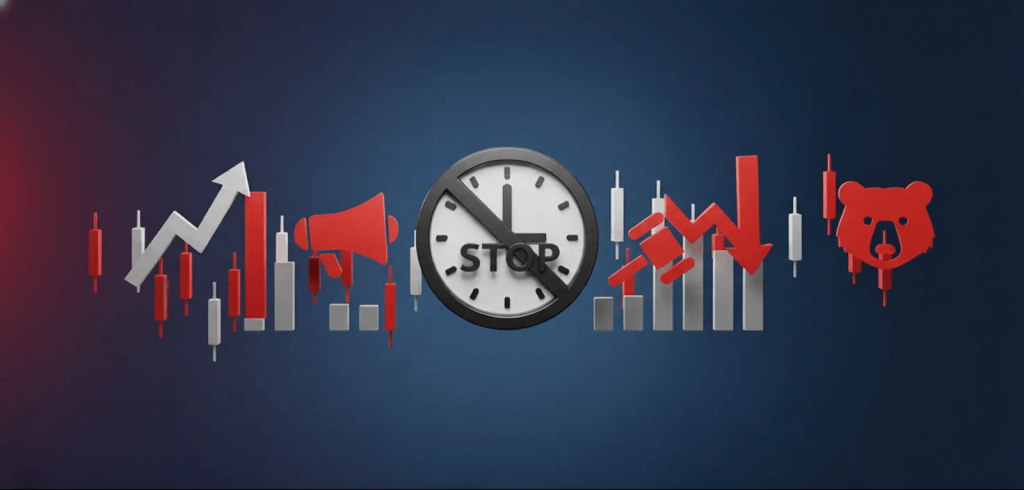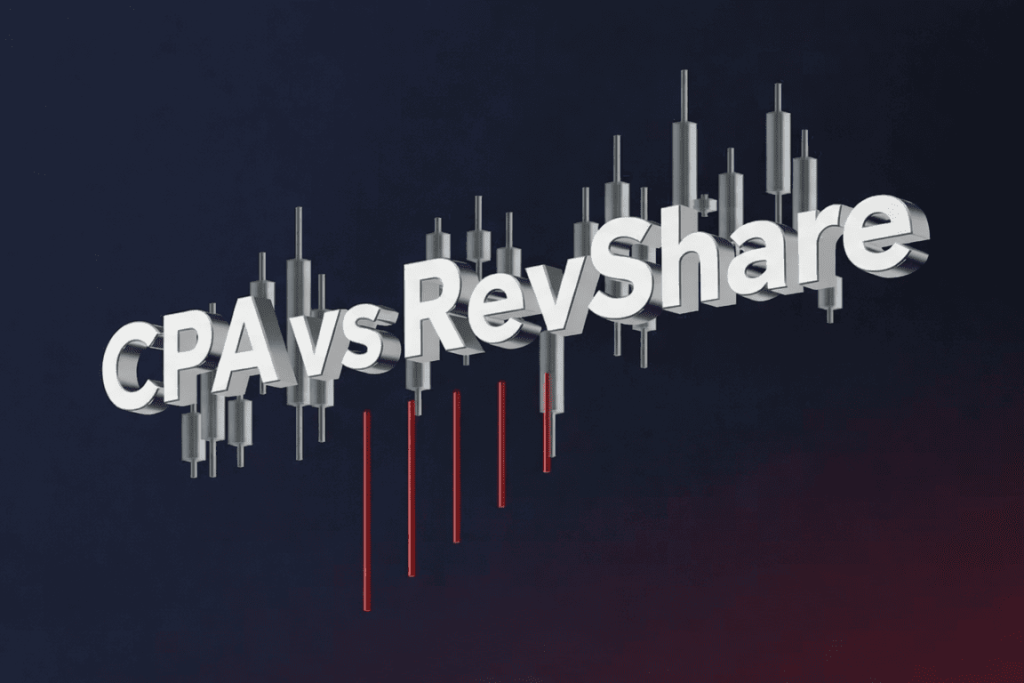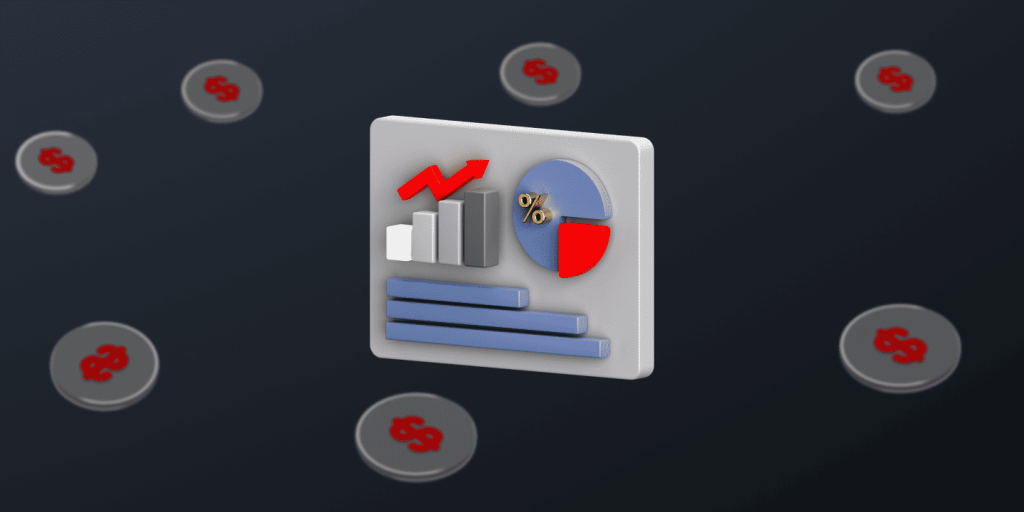
Forex CRM là gì và nó hoạt động như thế nào?
Mục lục
Thị trường Forex là một lĩnh vực năng động và không ngừng phát triển, nổi tiếng với khối lượng giao dịch khổng lồ và phạm vi hoạt động toàn cầu. Khi các nhà giao dịch tham gia vào các cặp tiền tệ, với hy vọng tận dụng những sắc thái tinh tế của nền kinh tế toàn cầu, các nhà môi giới thấy mình ở trong một vị thế đầy thách thức khi phải quản lý vô số khách hàng và các giao dịch tương ứng của họ. Đây chính là lúc các hệ thống Quản lý Quan hệ Khách hàng (CRM), được thiết kế riêng cho lĩnh vực Forex, trở nên vô cùng cần thiết. Bài viết này đi sâu vào những phức tạp của một hệ thống CRM Forex và cách thức hoạt động của nó, cung cấp những hiểu biết giá trị để nâng cao hành trình môi giới của bạn.
Định nghĩa về Forex CRM
Quản lý Quan hệ Khách hàng (CRM) là một hệ thống công nghệ toàn diện được thiết kế để tối ưu hóa tương tác của doanh nghiệp với khách hàng hiện tại và khách hàng tiềm năng. Về cơ bản, CRM hướng đến việc nâng cao tương tác với khách hàng, thiết lập các kênh giao tiếp hiệu quả và cung cấp dịch vụ lưu trữ dữ liệu được tổ chức và dễ tiếp cận.
Trong bối cảnh Forex, nhu cầu vượt ra ngoài các chức năng CRM tiêu chuẩn. Một hệ thống CRM Forex được thiết kế đặc biệt để đáp ứng những thách thức và yêu cầu đặc thù của môi trường ngoại hối. Thay vì chỉ là một phần mở rộng của CRM truyền thống, một hệ thống CRM Forex được thiết kế riêng, tích hợp các nguyên tắc cốt lõi của CRM đồng thời tích hợp các tính năng giải quyết những phức tạp đặc thù của môi trường. Giao dịch ngoại hối phong cảnh.
Hiểu được cường độ và tốc độ của thị trường Forex là yếu tố then chốt để nhận ra nhu cầu về một CRM chuyên biệt. Trong giao dịch Forex, các giao dịch được thực hiện gần như ngay lập tức, phản ánh bản chất toàn cầu và thay đổi nhanh chóng của thị trường. Một môi trường như vậy đòi hỏi một cơ sở hạ tầng có thể quản lý và xử lý hiệu quả các tương tác và giao dịch lớn mà không bỏ sót bất kỳ chi tiết nào.
Một CRM Forex đóng vai trò là cơ sở hạ tầng quan trọng này. Nó cung cấp khả năng quản lý hoạt động hợp lý để Các công ty môi giới ngoại hối , đảm bảo rằng mọi tương tác, dù là giao tiếp với khách hàng hay xử lý giao dịch, đều được xử lý chính xác và hiệu quả.
Độ tin cậy và hiệu quả của hệ thống CRM có thể tạo nên sự khác biệt đáng kể cho một công ty môi giới trong thế giới giao dịch Forex đầy cạnh tranh. Bằng cách ghi chép và xử lý tỉ mỉ từng tương tác và giao dịch, một hệ thống CRM Forex đảm bảo các công ty môi giới luôn chính xác, hiệu quả và phản hồi nhanh chóng. Khả năng xử lý dữ liệu giao dịch và dữ liệu khách hàng quan trọng của CRM với tốc độ nhanh chóng và bảo mật mạnh mẽ đã biến nó từ một công cụ vận hành đơn thuần thành một tài sản không thể thiếu cho các công ty môi giới đang nỗ lực đạt được sự xuất sắc trên thị trường.
Các tính năng chính của Forex CRM
Hệ thống Forex CRM là một công cụ mạnh mẽ với nhiều tính năng. Để hiểu rõ tầm quan trọng của nó trong thế giới Forex đầy biến động, hãy cùng tìm hiểu sâu hơn về từng chức năng quan trọng sau:
Đăng ký và giới thiệu khách hàng
Điểm khởi đầu cho mọi khách hàng là việc tiếp nhận và đăng ký. Giai đoạn này không chỉ đơn thuần là một bước thủ tục; nó còn định hình toàn bộ mối quan hệ giữa khách hàng và môi giới. CRM đóng vai trò như một người gác cổng ở đây. Bằng cách tinh giản quy trình đăng ký, hệ thống đảm bảo khách hàng không bị vướng mắc bởi thủ tục hành chính. Hệ thống ghi lại chi tiết thông tin khách hàng, xác minh các tài liệu cần thiết và đẩy nhanh quá trình kích hoạt tài khoản. Ưu điểm của quy trình tự động này là lợi thế kép. Đối với khách hàng, việc khởi tạo nhanh chóng mang lại ấn tượng ban đầu tích cực. Đối với các công ty môi giới, điều này đồng nghĩa với việc tạo ra doanh thu nhanh hơn và giảm thiểu các tác vụ thủ công dễ xảy ra sai sót.
Quản lý khách hàng tiềm năng
Trước khi khách hàng chính thức bắt đầu hành trình giao dịch, họ là một phần của một biển khách hàng tiềm năng rộng lớn, mỗi khách hàng đang ở những giai đoạn tương tác khác nhau với công ty môi giới. Hệ thống CRM là một la bàn tinh vi định hướng cho biển khách hàng tiềm năng rộng lớn này. Nó phân loại khách hàng tiềm năng, theo dõi tương tác của họ, tự động hóa các bước theo dõi và đảm bảo rằng các cơ hội chuyển đổi tiềm năng không bị bỏ lỡ. Nó giống như việc có một đội ngũ tận tâm làm việc suốt ngày đêm, đảm bảo mọi khách hàng tiềm năng đều được nuôi dưỡng để chuyển đổi thành khách hàng thực sự.
Quản lý giao dịch
Tốc độ giao dịch trong thế giới Forex thật đáng kinh ngạc. CRM nổi lên như xương sống của những tương tác tài chính này. Mọi khoản nạp, rút và chuyển động tài chính đều được ghi lại, theo dõi và xác minh. Việc quản lý tập trung này đảm bảo sự an toàn kép - khách hàng được minh bạch và chính xác trong giao dịch, trong khi các công ty môi giới được hưởng lợi từ hoạt động hợp lý và giảm thiểu sai sót.
Phân khúc khách hàng
Thị trường giao dịch Forex rất phong phú và đa dạng, bao gồm một lượng khách hàng đa dạng. Vai trò của CRM ở đây là một chuyên gia tỉ mỉ, phân khúc khách hàng dựa trên nhiều chỉ số khác nhau – có thể là tần suất giao dịch, sở thích tài sản, hoặc khẩu vị rủi ro. Việc phân khúc này đồng nghĩa với việc mọi giao tiếp hoặc dịch vụ đều có thể được thiết kế riêng, đảm bảo tỷ lệ hài lòng cao hơn và lòng trung thành sâu sắc hơn của khách hàng.
Quản lý rủi ro
Ngoài những rủi ro thị trường vốn có, các công ty môi giới phải đề phòng các hành vi không tuân thủ và gian lận tiềm ẩn. CRM đóng vai trò như một lính gác cảnh giác trong bối cảnh này. Nó liên tục sàng lọc các mô hình giao dịch bất thường, đảm bảo tuân thủ nghiêm ngặt các quy định tài chính toàn cầu và thiết lập các biện pháp bảo vệ giao dịch cần thiết. CRM là người bảo vệ thầm lặng, đảm bảo hoạt động của công ty môi giới trong một khuôn khổ an toàn.
Báo cáo & Phân tích
CRM đóng vai trò như một cỗ máy phân tích mạnh mẽ trong một lĩnh vực được vận hành bởi các con số. Với khả năng báo cáo và phân tích chuyên sâu, các công ty môi giới có thể thu thập những thông tin chi tiết vốn trước đây bị chôn vùi trong đống dữ liệu. Dù là hiểu rõ xu hướng thị trường, hành vi khách hàng hay hiệu quả chiến dịch, CRM đều cung cấp cái nhìn tổng quan, cho phép các công ty môi giới hoạch định chiến lược một cách chính xác.
Tích hợp với Nền tảng giao dịch
Trong thời đại kỹ thuật số, các hệ thống biệt lập là nguyên nhân dẫn đến sự kém hiệu quả. Đặc biệt là trong thị trường Forex, nơi các nền tảng như MT4 và MT5 chiếm ưu thế, việc tích hợp liền mạch là vô cùng quan trọng. CRM đảm bảo sự tương tác hài hòa này. CRM đảm bảo một môi trường giao dịch gắn kết và hiệu quả bằng cách đồng bộ hóa dữ liệu khách hàng, lịch sử giao dịch và các thông tin liên quan khác trên các nền tảng.
Quản lý liên kết và IB
Các công ty môi giới là một phần của hệ sinh thái lớn hơn, có liên kết chặt chẽ với Giới thiệu môi giới (IB) và các chi nhánh. Hệ thống CRM ở đây hoạt động như một trình quản lý quan hệ, giám sát các mối quan hệ đối tác này. Nó theo dõi các lượt giới thiệu, quản lý cơ cấu hoa hồng và đảm bảo mối quan hệ cộng sinh giữa các công ty môi giới và đối tác luôn minh bạch và hiệu quả.
Tích hợp hệ thống vé cho bộ phận hỗ trợ khách hàng
Trong thế giới Forex, việc hỗ trợ khách hàng kịp thời có thể quyết định thành bại danh tiếng của một công ty môi giới. Nhờ tích hợp với hệ thống quản lý yêu cầu, CRM đảm bảo mọi thắc mắc của khách hàng đều được giải đáp. Mọi phản hồi và mối quan tâm đều được ghi nhận và xử lý nhanh chóng, tận tâm. Hệ thống liền mạch này củng cố niềm tin của khách hàng và củng cố danh tiếng của công ty môi giới như một đơn vị thực sự lấy khách hàng làm trọng tâm.
Mỗi khía cạnh của Forex CRM đều được thiết kế tỉ mỉ để phục vụ cho một khía cạnh cụ thể của hoạt động môi giới, khiến nó trở thành một công cụ không thể thiếu trong thế giới giao dịch Forex phức tạp.
Chọn đúng CRM Forex
Trong lĩnh vực giao dịch Forex luôn biến động, nơi các quyết định và động lực liên tục thay đổi, một hệ thống CRM phù hợp có thể đóng vai trò vừa là mỏ neo vừa là la bàn. Công cụ định hướng này giúp tinh giản hoạt động và củng cố mối quan hệ với khách hàng, đảm bảo bạn luôn dẫn đầu trong bối cảnh cạnh tranh này.
- Khả năng mở rộng
Hãy tưởng tượng việc thiết lập một mô hình kinh doanh và chứng kiến sự tăng trưởng nhanh chóng trong một khoảng thời gian ngắn. Sự tăng trưởng đột biến này có thể rất phấn khích, nhưng liệu CRM của bạn có theo kịp? Đây chính là lúc khái niệm khả năng mở rộng trở nên then chốt. Nó liên quan đến việc dự đoán quỹ đạo tăng trưởng của bạn—tính đến cơ sở khách hàng đang mở rộng, nhu cầu luôn thay đổi và tiềm năng là các chức năng mới. Tuy nhiên, khi bạn phát triển, các khía cạnh kinh tế của CRM cũng sẽ phát huy tác dụng. Mặc dù một số hệ thống CRM ban đầu có vẻ hiệu quả về mặt chi phí, nhưng động lực tài chính có thể thay đổi khi bạn mở rộng. Chi phí không nên tăng quá mức; nó nên phản ánh đúng giá trị mà nó mang lại.
- Bảo vệ
Và rồi còn nền tảng của bất kỳ nền tảng kỹ thuật số nào: bảo mật. Bảo mật dữ liệu trở nên tối quan trọng trong môi trường rủi ro cao của Forex, nơi những khoản tiền khổng lồ được trao tay chỉ trong chớp mắt. Một CRM lý tưởng phải sử dụng các phương pháp mã hóa mạnh mẽ để bảo vệ dữ liệu, trải qua các cuộc kiểm tra bảo mật nghiêm ngặt và được trang bị hệ thống sao lưu và phục hồi dữ liệu mạnh mẽ. Bởi vì, trong thời đại kỹ thuật số này, bảo vệ không chỉ là ngăn chặn các mối đe dọa bên ngoài mà còn là phục hồi nhanh chóng trước những rủi ro không lường trước được.
- Tính linh hoạt
Tuy nhiên, mỗi công ty môi giới Forex, dù là một phần của thế giới giao dịch rộng lớn hơn, vẫn có những sắc thái vận hành riêng biệt. CRM bạn chọn nên tận dụng những đặc điểm này. Nó phải linh hoạt, thích ứng với các chiến thuật vận hành, sở thích giao tiếp cụ thể của bạn, và thậm chí cả xu hướng thị trường và hành vi khách hàng luôn thay đổi. CRM không chỉ đáp ứng nhu cầu hiện tại mà còn đủ linh hoạt để phát triển cùng tương lai.
- Khả năng tích hợp
Các công ty môi giới thường sử dụng một loạt các công cụ cùng với CRM của họ. CRM phù hợp tích hợp liền mạch với nền tảng giao dịch , cổng thanh toán hoặc công cụ phân tích. Một bộ tích hợp API đảm bảo luồng dữ liệu thông suốt trên toàn bộ chuỗi hoạt động của bạn.
- Giao diện thân thiện với người dùng
Mặc dù CRM giàu tính năng mang lại nhiều lợi thế, nhưng giao diện người dùng phức tạp có thể làm chậm hoạt động và dẫn đến kém hiệu quả. Thiết kế gọn gàng, trực quan đảm bảo đội ngũ của bạn có thể dễ dàng điều hướng hệ thống, giảm thiểu thời gian học hỏi và thúc đẩy việc áp dụng nhanh hơn. Điều này giúp tăng năng suất và đảm bảo bạn có thể khai thác toàn bộ tiềm năng của hệ thống ngay từ đầu.
- Phân tích và Báo cáo
Trong thế giới Forex biến động chóng mặt, thông tin chuyên sâu có thể là chìa khóa để tận dụng các cơ hội thị trường thoáng qua. Một CRM mạnh mẽ nên cung cấp khả năng phân tích mạnh mẽ, cho phép bạn theo dõi hành vi khách hàng, mô hình giao dịch và hiệu quả hoạt động. Kết hợp với các công cụ báo cáo toàn diện, bạn có thể có được cái nhìn toàn cảnh về doanh nghiệp của mình, đưa ra quyết định dựa trên dữ liệu để thúc đẩy hoạt động môi giới của mình.
- Tính di động
Trong thời đại kỹ thuật số ngày nay, tính di động là tối quan trọng. Một CRM có thiết kế đáp ứng hoặc ứng dụng di động chuyên dụng đảm bảo bạn có thể quản lý hoạt động mọi lúc mọi nơi. Cho dù đó là theo dõi giao dịch, giao tiếp với khách hàng hay phân tích báo cáo, khả năng truy cập di động đảm bảo bạn luôn nắm quyền kiểm soát, bất kể bạn đang ở đâu.
- Sự tuân thủ
Thị trường Forex được quản lý chặt chẽ, với các quy định tuân thủ liên tục thay đổi. Điều quan trọng là phải chọn một CRM được thiết kế phù hợp với các khuôn khổ quản lý này. CRM bao gồm các tính năng như tự động hóa Quy trình KYC , kiểm tra chống rửa tiền và các công cụ quản lý rủi ro. Việc đảm bảo hoạt động của bạn tuân thủ các tiêu chuẩn toàn cầu sẽ bảo vệ công ty môi giới của bạn khỏi những hậu quả pháp lý tiềm ẩn và tạo dựng niềm tin cho khách hàng.
- Hệ thống hỗ trợ
Cuối cùng, sự tinh vi của một CRM không chỉ phụ thuộc vào các tính năng mà còn được xác định bởi mạng lưới an toàn mà nó cung cấp. Như chúng ta đã biết, thách thức là điều không thể tránh khỏi. Trong những thời điểm như vậy, hệ thống hỗ trợ của CRM sẽ là ngọn hải đăng dẫn đường. Với thời gian phản hồi nhanh chóng, nguồn lực đào tạo toàn diện và phương pháp tiếp cận lấy phản hồi làm trọng tâm, CRM đảm bảo bạn sẽ không bao giờ bị bỏ lại phía sau.
Tóm lại, việc lựa chọn một phần mềm Forex CRM hoàn hảo không chỉ đơn thuần là đánh giá các tính năng. Đó là việc xây dựng một liên minh chiến lược, lựa chọn đối tác phù hợp với tầm nhìn của bạn và thúc đẩy hoạt động môi giới của bạn hướng tới thành công bền vững.
NHỮNG ĐIỀU CẦN LƯU Ý
- Hệ sinh thái tùy chỉnh:CRM Forex là công cụ được thiết kế riêng để đáp ứng nhu cầu riêng biệt của các công ty môi giới Forex, vượt ra ngoài phạm vi của các CRM chung.
- Từ hoạt động đến chiến lược:Ngoài các hoạt động cơ bản, Forex CRM còn đóng vai trò là tài sản chiến lược, biến dữ liệu khổng lồ thành thông tin chi tiết hữu ích cho các nhà môi giới.
- Khả năng thích ứng là chìa khóa: Một Forex CRM hàng đầu có khả năng mở rộng theo sự phát triển và đảm bảo tích hợp liền mạch với các công cụ khác trong ngành, đảm bảo quy trình làm việc hiệu quả và theo thời gian thực.
Thách thức và hạn chế
Hệ thống CRM Forex đã trở thành một công cụ thiết yếu cho các nhà môi giới, giúp hợp lý hóa hoạt động và cải thiện mối quan hệ với khách hàng. Tuy nhiên, giống như bất kỳ công nghệ nào, chúng cũng đi kèm với những thách thức và hạn chế riêng cần được thừa nhận.
Một mối quan tâm chính là sự khác biệt giữa CRM chung và CRM được thiết kế riêng cho thị trường Forex. CRM chung có thể cung cấp nhiều tính năng phù hợp với nhiều ngành nghề khác nhau nhưng có thể thiếu các chức năng chuyên biệt cần thiết cho hoạt động Forex. Việc thiếu các tính năng chuyên biệt này có thể dẫn đến hoạt động kém hiệu quả và ảnh hưởng đến khả năng phục vụ khách hàng hiệu quả của sàn môi giới.
Tốc độ phát triển nhanh chóng của công nghệ cũng đặt ra những thách thức. Hệ thống CRM cần liên tục cải tiến để đáp ứng nhu cầu thay đổi của thị trường. Nếu không được cập nhật thường xuyên, ngay cả hệ thống CRM tiên tiến nhất cũng có thể trở nên lỗi thời, kém hiệu quả và có khả năng khiến các nhà môi giới gặp bất lợi về mặt cạnh tranh.
Hơn nữa, việc ngày càng phụ thuộc vào tự động hóa, mặc dù có lợi về nhiều mặt, đôi khi có thể làm lu mờ tầm quan trọng của tương tác giữa con người trong ngành môi giới. Điều quan trọng cần nhớ là công nghệ nên nâng cao nỗ lực của con người trong quan hệ khách hàng, chứ không phải thay thế họ.
Xét đến tất cả những điều đã đề cập ở trên, mặc dù CRM Forex là công cụ không thể thiếu đối với các công ty môi giới hiện đại, việc nhận biết và giải quyết những thách thức và hạn chế tiềm ẩn của chúng là vô cùng quan trọng. Bằng cách đó, các nhà môi giới có thể đảm bảo tối đa hóa lợi ích của hệ thống CRM đồng thời giảm thiểu mọi nhược điểm tiềm ẩn.
Phần kết luận
Trong thế giới giao dịch Forex sôi động, CRM không chỉ là một giải pháp phần mềm đơn thuần; nó còn là một công cụ thiết yếu. Đối với các nhà môi giới khao khát dẫn đầu thị trường, việc đầu tư vào một hệ thống CRM Forex mạnh mẽ, hiệu quả và hiệu suất cao không chỉ được khuyến nghị mà còn là điều bắt buộc. Khi công nghệ tiếp tục định hình tương lai của giao dịch Forex, việc kết hợp với các công cụ và nguồn lực phù hợp sẽ quyết định vị thế dẫn đầu trong lĩnh vực giao dịch toàn cầu này.
Đã cập nhật:
18 tháng 12, 2024
9 tháng 2, 2026
What Is a Trading Halt? Why Stocks Stop Trading and What It Means for You => Hủy giao dịch là gì? Tại sao cổ phiếu lại ngừng giao dịch và điều đó có nghĩa gì đối với bạn
Hướng dẫn này sẽ đưa bạn qua CPA so với RevShare (và các sự kết hợp hỗn hợp), giải thích ý nghĩa thực sự của chúng đối với doanh nghiệp môi giới của bạn.



